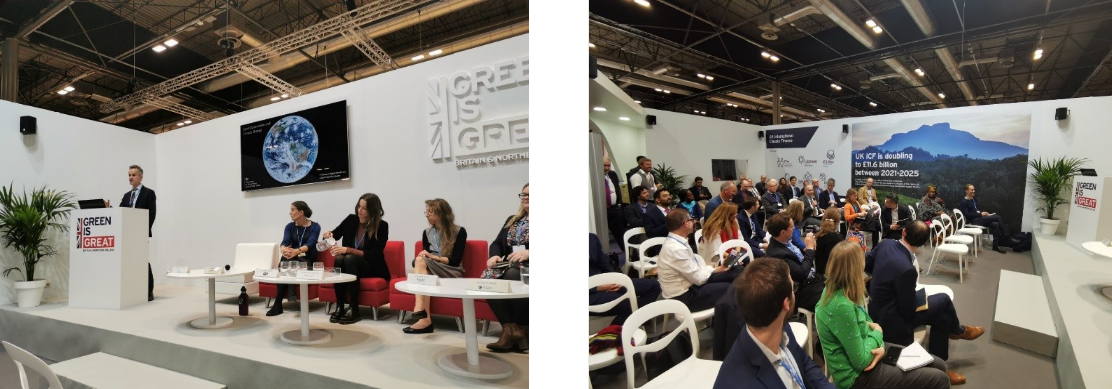CDT Student Megan Bickle reflects on UKRI Department of Environment, Food and Rural Affairs Policy Internship
UK Research and Innovation (UKRI) provide the opportunity for doctoral students to work for three months in one of a selected group of policy organisations (https://www.ukri.org/skills/policy-internships-scheme/). My Application to work within Defra was successful, and I chose to start at the London offices in August 2019. The internship involved writing an evidence statement summarising the latest findings on a topic of interest to policy makers. I was asked to write a briefing on the bacterium Xylella fastidiosa. The bacterium causes diseases in a wide range of plants, and although is not currently present in the UK, has been responsible for major disease outbreaks in mainland Europe. As a mathematician who now works in meteorology this field was completely new to me. I was excited to have a challenge which was so different from my PhD but nervous about researching a topic I had so little experience with.
The initial part of my internship involved familiarising myself with the two teams I was associated with: the Plant Health Evidence and Analysis Team and the Chief Scientific Advisers (CSA) Office. It was beneficial to be imbedded in both teams as I was able to take part in away days, as well as weekly meetings where key political decisions, events,and their ramifications were discussed. I took advantage of several training opportunities including a session on how to communicate with Ministers which was incredibly useful. After some initial confusion I started to gain familiarity with the culture of the department including the endless use of acronyms!
During the first couple of weeks I asked a lot of questions about the purpose of the evidence statement. I needed to know who it was for and what questions they wanted to be answered. Once I had gained an idea of what was required, I completed a systematic literature review so as to answer the questions raised. Once I had produced a list of relevant literature I started to research the topic. Having relevant experts I could contact for help with difficult concepts was invaluable. Finally, I focused on producing a document which was clear and concise while being easily accessible for non-specialists.
I also focused on pro-actively finding other tasks that I wanted to work on. Since I was there toward the end of 2019, the CSAs Office were planning for the UN Climate Conference COP25. I became involved with organising an Earth Observation event in the UK Pavilion including communicating with speakers and designing publicising materials. I also contributed to organising the CSA’s timetable for the conference, briefing him for the events he would attend and preparing slides for his speeches. It was incredibly exciting to be involved in the planning of such an event and to gain an insight into the decision-making behind a UK political stance.
The internship gave me the opportunity to travel to several research facilities in the UK and meet scientists working on different problems. I was able to join in with meetings where large-scale projects were being planned across different organisations, regions, and devolved countries. It was fascinating to witness the complexities involved in decision making and the varied viewpoints which must be considered. I found the number of trained scientists at Defra surprising and the efforts made to ensure scientific evidence would be used effectively encouraging.

Figure : Photographs from the COP25 event on Earth Observations I helped to organise.
